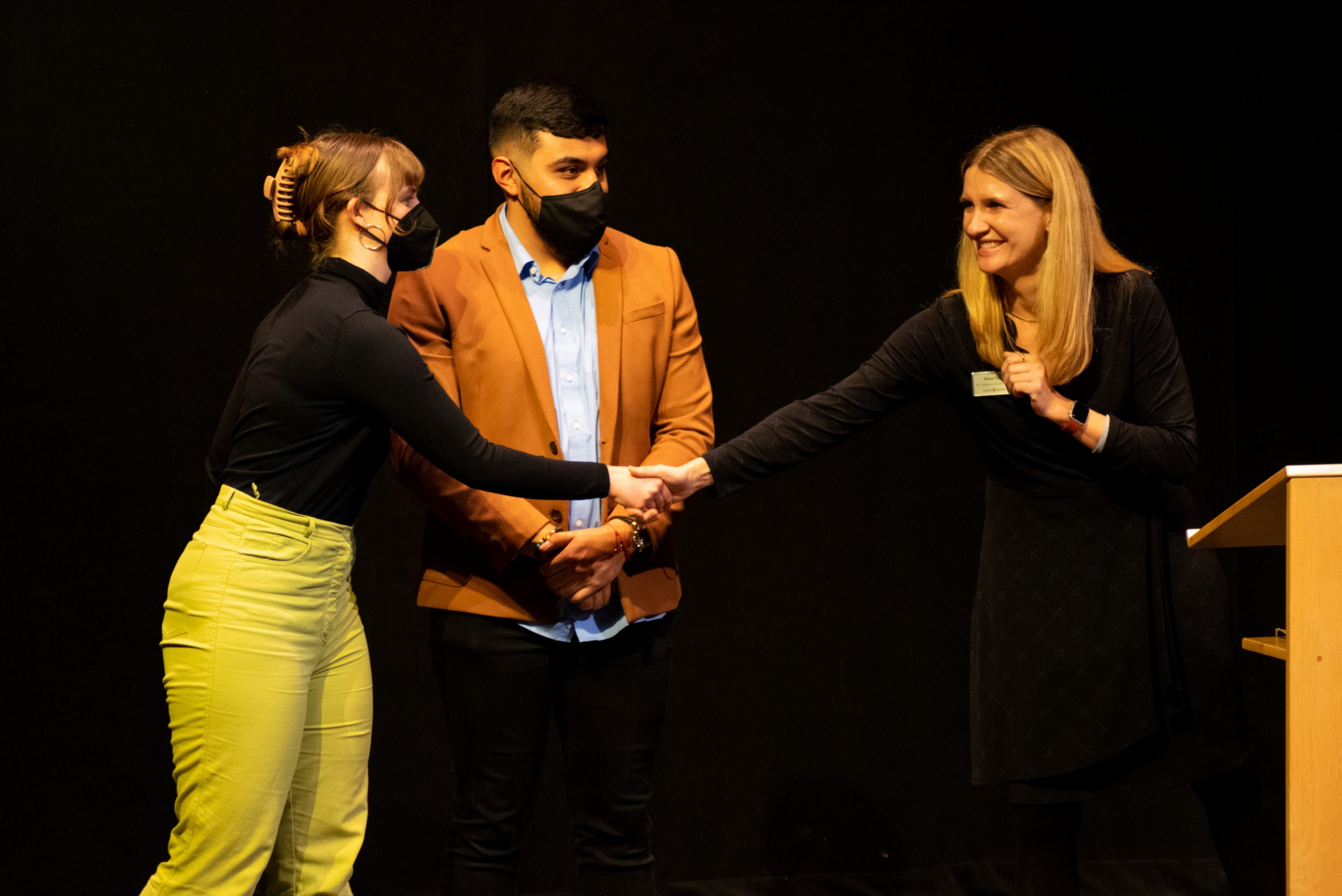Greta Lapp Klassen won first place in the C. Henry Smith Peace Oratorical Contest on Tuesday with her speech “Humanizing Our World, One Walkway at a Time.”
"If you aren't driving a car in 2022, you are not a fully participatory member of our capitalist society."
— Greta Lapp Klassen
One of the three judges, Janna Hunter-Bowman, an associate professor of peace studies and Christian social ethics at Anabaptist Mennonite Biblical Seminary, highlighted a line from Lapp Klassen’s speech: “If you aren’t driving a car in 2022, you are not a fully participatory member of our capitalist society.”
Hunter-Bowman said she and her fellow judges were impressed by the creativity all the contestants brought to questions of peace and justice and were inspired by their delivery, which made for “a really hard time” selecting a winner.
The second-place winner was Bryan Hernandez Rodriguez who spoke on the sacrifices and selflessness of immigrant factory workers. He described the humbling experience of working in a factory and urged the audience to recognize these workers as the foundation of our society.
Caleb Gingerich and Ebithal Abdelaziz also spoke in the contest.
Gingerich’s speech on whitewashed history pointed out that history is a collection of stories. He noted the way we teach American history in the United States is not factual and called for economic reparations and a path towards reconciliation with minorities that have been hurt by the imperfect histories we teach.
Abdelaziz gave an enthusiastic speech about the importance of collaboration in the world and in science. She claimed every modern field needs the collaboration of minds, countries and continents in order to make progress.
Anna Groff, contest director and assistant professor of communication, was excited by the variety of topics the contestants presented. She said the judges were “not comparing apples to apples.” As an audience member, she thought, “Wow, what different speeches!”
Lapp Klassen ultimately edged out the competition. She impressed the judges with insights she gained firsthand about society’s prioritization of vehicles over pedestrians. Her speech described biking across the country and having to squeeze onto the shoulder as cars and trucks flew past, hogging the road.
Through what she called the “Yellowstone paradox,” most cities and national parks that are created for people to enjoy are dominated by infrastructure that caters to the automobile and ignores pedestrians. A nature preserve, Yellowstone National Park was one of the most dangerous places to bike in her entire cross-country trip.
Lapp Klassen pointed out that the effects of such a system reach far beyond dangerous biking conditions for tourists. In cities like Elkhart, a lack of sidewalks and pedestrian-friendly infrastructure can prevent people from accessing necessities like grocery stores, doctor offices and job interviews. “Small tasks with a car become massive undertakings without one,” she said.
Lapp Klassen also connected the issue to systemic racism, noting that people of color are disproportionately affected by poor infrastructure. Black households are “five times more likely to depend on public transportation to access vital services and opportunities” than white households, she reported.
College campuses like GC are enjoyable to live on because they are designed for people, not cars, Lapp Klassen said. She called for people-centered design everywhere, not just at universities.
What does Lapp Klassen suggest people do? She said to start small and let politicians know about places where sidewalks are lacking. She also suggested people try walking or biking instead of driving to experience what it is like for those who don’t have another option.



